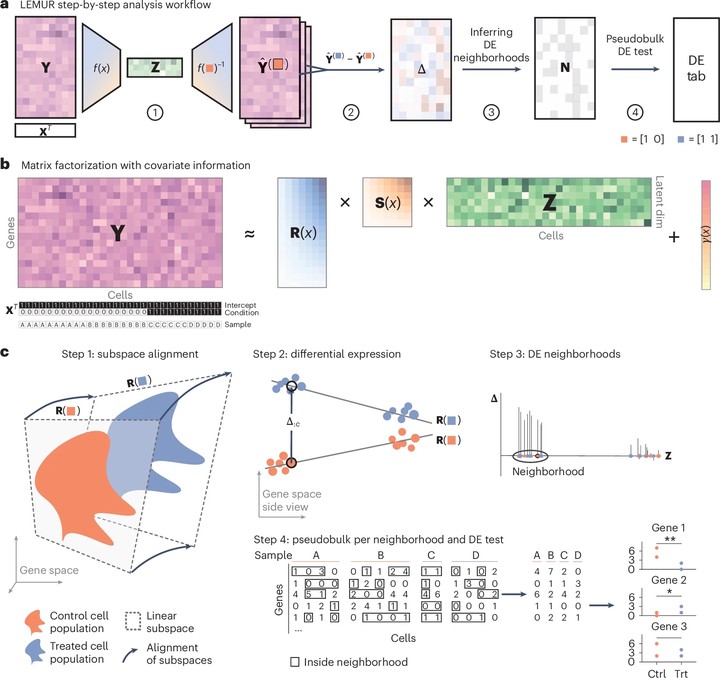Analysis of multi-condition single-cell data with latent embedding multivariate regression
 Figure 1: Conceptual overview of LEMUR
Figure 1: Conceptual overview of LEMUR
Abstract
Identifying gene expression differences in heterogeneous tissues across conditions is a fundamental biological task, enabled by multi-condition single-cell RNA sequencing (RNA-seq). Current data analysis approaches divide the constituent cells into clusters meant to represent cell types, but such discrete categorization tends to be an unsatisfactory model of the underlying biology. Here, we introduce latent embedding multivariate regression (LEMUR), a model that operates without, or before, commitment to discrete categorization. LEMUR (1) integrates data from different conditions, (2) predicts each cell’s gene expression changes as a function of the conditions and its position in latent space and (3) for each gene, identifies a compact neighborhood of cells with consistent differential expression. We apply LEMUR to cancer, zebrafish development and spatial gradients in Alzheimer’s disease, demonstrating its broad applicability.